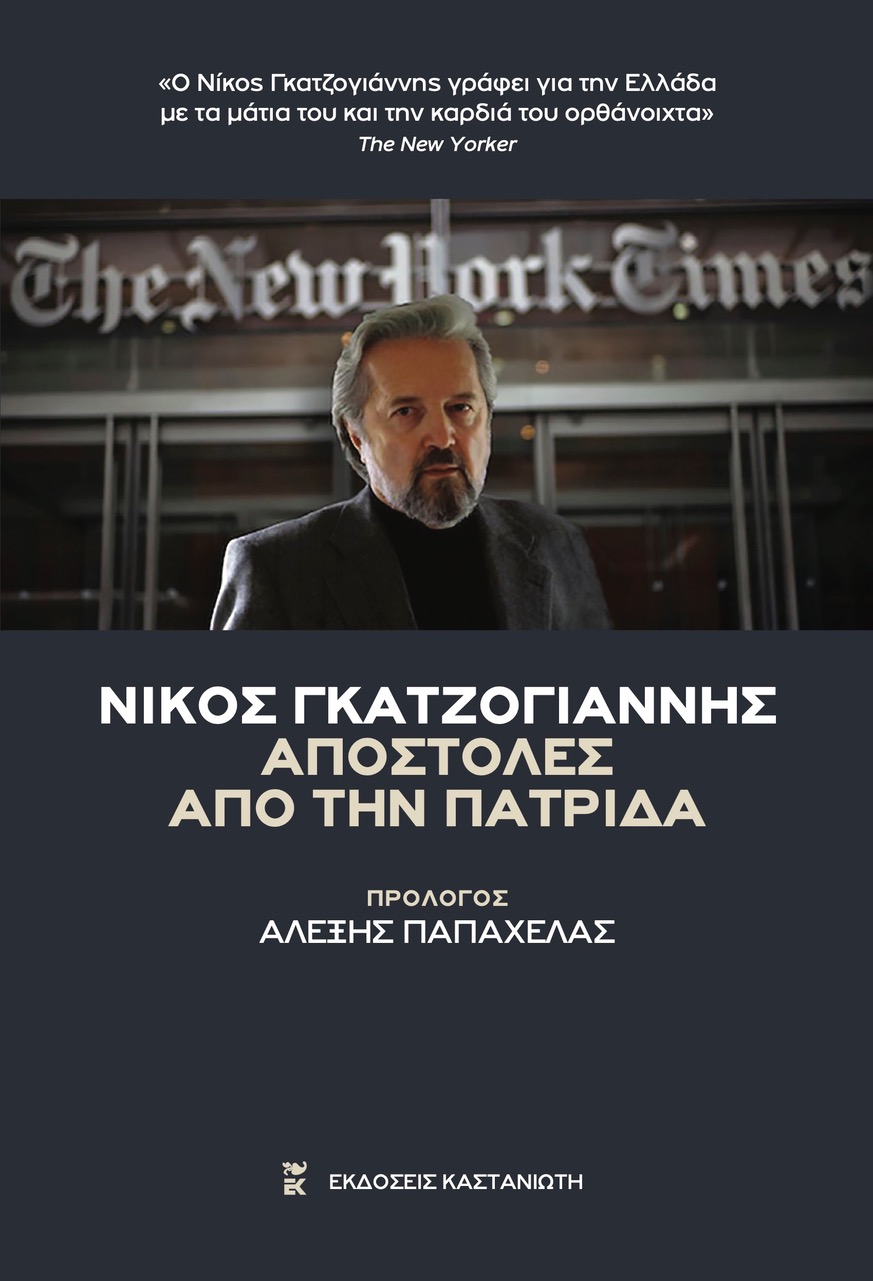Dispatches from the homeland, echoes of an undying nostos
Greek-American Nicholas Gage’s new book launched in Athens

Published recently, Nicholas Gage’s latest book “Dispatches from the Homeland” (published by Kastaniotis; title translated from the Greek) is a collection of stories published over a span of more than half a century in a wide range of daily newspapers and magazines including The New York Times, Vanity Fair and Kathimerini.
Born Nikos Gatzoyiannis in Lia, a remote village in Greece’s Epirus region in 1939, Gage 10 years later fled to the United States, an escape organized by his mother, amid the country’s 1946-49 civil war. He joined relatives in Worcester, Massachusetts while he still could not speak a single word of English.
The Greek-American author and investigative journalist, now 83, is most famous for his 1985 award-winning autobiographical memoir “Eleni” (which was also made into a feature film starring John Malkovich as Gage), a riveting account of his quest to uncover the truth behind his mother’s assassination during the civil war.
His latest book, which feels like a thrilling journey through 20th century Greek history and society, was presented Monday evening at the Basil and Marina Theocharakis Foundation for the Fine Arts and Music.
Describing Gage as “a modern reincarnation of Odysseus syndrome,” former conservative prime minister Antonis Samaras said the book “is a spiritual Odyssey; a constant return to Ithaca.”
‘It is often said that in order to appreciate something, you have to see it from outside and from a distance. Diaspora Greeks possess this double quality’
“It is often said that in order to appreciate something, you have to see it from outside and from a distance. Diaspora Greeks possess this double quality: They feel Greece as a part of themselves, they carry it inside them, in their soul. At the same time, they can look at it from outside – and from afar. They see its failings and its wounds,” he said.
Speaking of reactions to “Eleni” from left-wing critics in Greece, Samaras said they were triggered “maybe because it concerns a difficult issue and a difficult time. Or maybe because some people are mistaking forgiveness, necessary after the tragedy of civil war, for the fabrication of history.”
Athens Mayor Kostas Bakoyannis praised Gage’s forceful insightful and, at the same time, economical writing style. He also drew attention to the theme of “nostos,” homecoming, the idea of returning home from a long journey, which he said is rich in Gage’s writings.
“[The plight of] migrants shows that a stateless person (“apatris”) is a miserable person. We must keep this in mind when we engage in noisy quarrels about minor issues,” he said.
Kathimerini’s executive editor Alexis Papachelas, who penned the introduction to the book, commended Gage’s determined opposition to Greece’s 1967-74 military dictatorship. He also praised the author’s investigative work, including reporting for The New York Times and The Wall Street Journal.
Gage’s work on organized crime led to the publication of two best-sellers, “The Mafia is not an Equal Opportunity Employer” and “Mafia, United States.”






